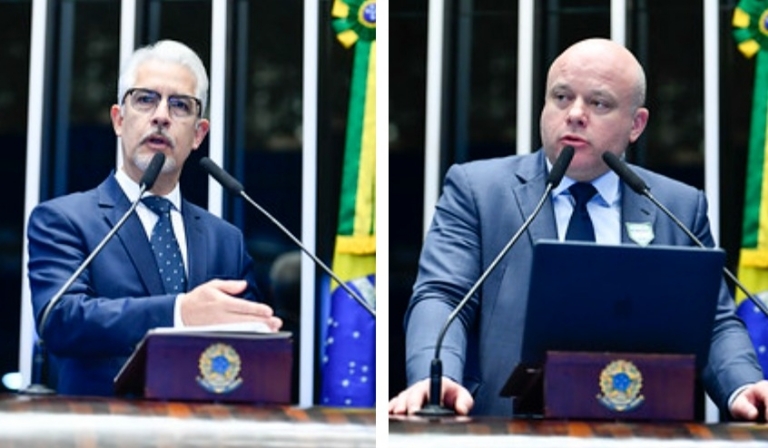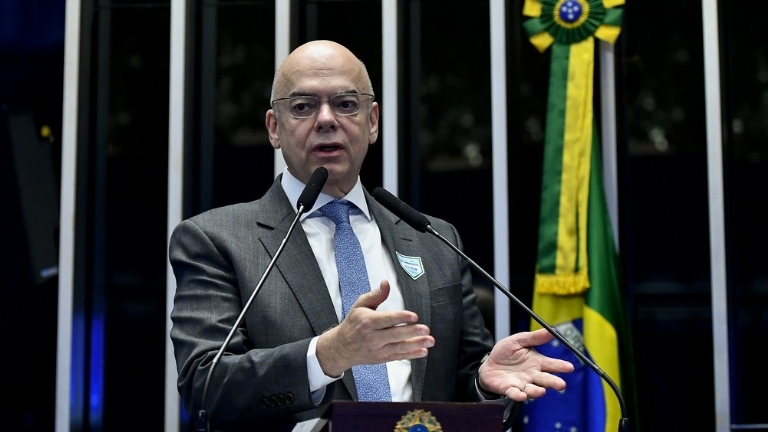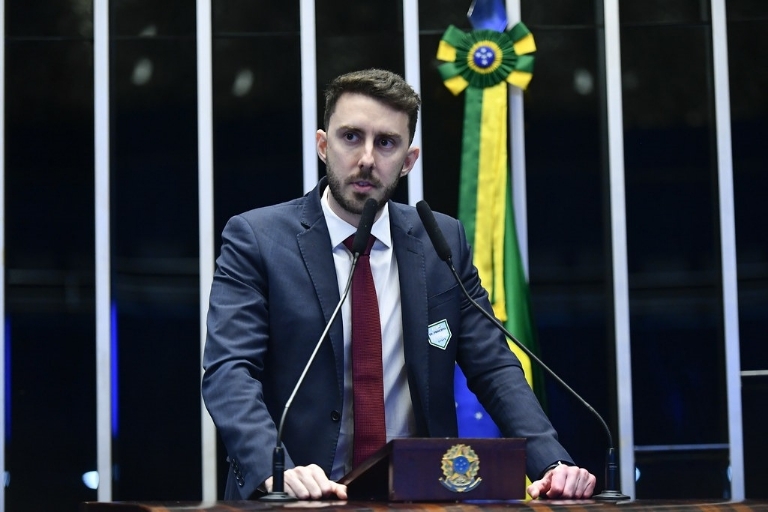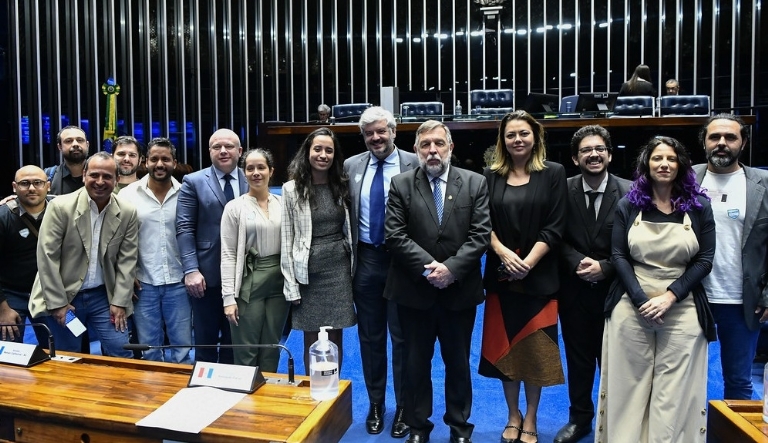

Bill 2,796/2021 defines fantasy games as disputes in a virtual environment based on the performance of real athletes. Participants in this modality “climb” imaginary teams, made up of characters that simulate the statistical performance of real athletes in a professional sport, such as football, volleyball or basketball.
The text from the Chamber of Deputies includes electronic games in the same taxation rules as computer equipment. As a result, investments in game development or production are now considered as applications in research, development and innovation. The Information Technology Law (Law 8,248, of 1991) grants financial credit on PDI expenses to deduct federal taxes.
During the thematic debate session, some of the debaters defended the inclusion of fantasy games in Bill 2,796/2021. For the other segment of experts, the measure could open a loophole in the Bill for more lenient taxation of gambling.

“Jabuti”
For Vilson Antonio Romero, president of the National Association of Tax Auditors of the Federal Revenue, the Billshould be dismembered. He suggests that the provisions dealing with fantasy games be analyzed in an autonomous proposal, submitted for analysis by Senate committees.
“From the beginning, everything happened in a rush in the Chamber of Deputies. A Plenary amendment that covers fantasy games had been rejected by the rapporteur. I think it's a 'jabuti' (local expression meaning "a turtle in a tree" questioning how something gets to a certain place) in the legal framework of electronic games. Fantasy games that are linked to a real game, [...] to a football player's lineup, must be completely unlinked. They must be treated in the same way as the betting taxation regulations. We have to bring them closer to quota-fixed bet games than to electronic games,” he explained.
Professor at the Federal University of Bahia Lynn Gama Alves, a specialist in the relationship between games and education, reinforces the criticism. She points out a series of “weaknesses” in the bill. Among them, the inclusion of fantasy games in the matter.
“There was an inappropriate combination of two distinct categories: video games and fantasy sports. Fantasy sports are limited to a type of game that involves betting, rewards, competitions and financial awards, considering the performance of athletes in sporting events. This characterization may indicate the opening of loopholes for betting platforms to take ownership of what is being said in the framework, 'justifying' the use of some types of games that can be addictive. Different objects require separate landmarks that take into account their specificities. Why isn’t there a bill of its own?”, she asked.

The president of the Brazilian Association of Law and Economics, Oksandro Gonçalves, classifies Bill 2,796/2021 as “a widespread confusion.”
“It’s not exactly a milestone. The object is not clear, the definitions are not properly framed, and there is widespread confusion regarding several aspects. If it intends to bring legal certainty, these definitions must be precise. It's a collection of loose items that need to be sorted. This is only possible through great discussion, and not through urgent requests,” he considered.
“Strategy and skill”
The president of the Brazilian Fantasy Sports Association, Rafael Marcondes, answered the criticisms. For him, Bill 2,796/2021 is “mature and ready to be approved.” He defends the maintenance of fantasy games in the text as a way of leveraging Brazil's investments in the technology area.
“Fantasy sport is a game of strategy and skill. It's not betting and it's not gambling. The legal nature of both activities is the same: technology. A gaming company, like a fantasy company, is mostly made up of people related to the technology area. The DNA of these two activities covered in the legal framework is the same: technology,” he argued.
Lawyer Victor Targino de Araújo, a legal consultant at the Sports Law Institute, agrees. He cited academic studies and court decisions from countries such as India and the United States to argue that fantasy games should not be confused with gambling.
“Fantasy games are not similar to betting. They are their own figure because they are absolutely dependent on the player's skill. This is very welcome in the bill. The first fantasy games began to be popular in the United States in the 1930s, linked to baseball. They were card games; they were physical games. Only the medium changed, but the game already existed. The game depends on skill to win. This parallel between skill and luck makes both figures unmistakable,” he stated.
Lawyer Udo Seckelmann, master in International Sports Law from the Higher Institute of Law and Economics in Madrid (Spain), highlights the differences between fantasy games and games of chance. He defends the approval of Bill 2,796/2021 as a way to attract foreign investment.
“Gambling involves an amount to be risked, an element of luck or chance and a prize to be paid if the prediction is correct. In fantasy games there is no such thing. While betting already has some legislative guidance, fantasy operators do not have this legislative and regulatory clarity. They arrive to invest, but become discouraged. Most give up precisely because they are afraid of making large investments in Brazil and, in a month, the public authorities will knock on the door and prevent the full exploitation of the activity due to confusion regarding the verticals of the game,” he warns.

“Rush”
The thematic debate session was suggested by senator Leila Barros (PDT-DF). She criticized the “accelerated processing” of the matter in the Chamber of Deputies and in the Economic Affairs Committee (CAE) of the Senate.
“Despite the urgency required to process Bill 2,796/2021, we cannot allow the matter to be forwarded quickly. Some of the main entities operating in the electronic games sector have expressed concern about the text of the project. They point out conceptual contradictions and items that were not covered by the regulatory framework,” she considered.
Senator Flávio Arns (PSB-PR), president of the Education and Culture Commission (CE), classified as “absurd” the vote on the matter in the Senate Plenary without discussion in other permanent bodies of the House.
“The characteristic of the Senate in all debates is that we do it with a lot of dialogue. Listen to all sectors of society, particularly this bill, which involves many tax, legal and educational aspects. We need to reach a common denominator, which favors Brazilian society in all aspects. For this dialogue to take place, time is needed. The intention is to vote tomorrow. This is absurd. Society has to rise up against this. Let's discuss. It doesn't make sense. The debate has to be had,” he stated.
Senator Veneziano Vital do Rêgo (MDB-PB), 1st vice-president of the Senate, also defended more dialogue to build convergences and, after insistence from numerous parliamentarians, postponed the vote on the matter, which was scheduled for this Thursday (21).
“Advancement in this debate depends on us being able to reach some consensus. We need to dialogue, debate the matter point by point so that we deliver the best legislative result to society. We already have a starting point, which is Bill 2,796/2021. There are some natural controversies and disagreements about it. There is no doubt that the topic is current, relevant and has great economic and social impact,” he said.
For senator Eduardo Girão (Novo-CE), it is necessary to be “cautious” when analyzing the project.
“When there is a rush, there are big controversies. I think we should exercise caution. Is it important for Brazil? Yeah, let's look into it. Now, do the snare drum? Does it have to be now? The bill excludes 95% of Brazil's gaming sector. In other words: it would exclude 1,500 Brazilian development companies. That is true? It’s a mess: we need to decant it and know what’s behind it all,” he warned.
Technology
Senator Jorge Seif (PL-SC) defended the vote on the matter. He cited an informative note from the Senate Legislative Consultancy according to which gambling is not included in the definition of electronic games provided for in Bill 2,796/2021.
“Slot machines and other games of similar chance are not considered electronic games. At this point, I have nothing to object to. On the contrary: we need to support, legitimize, legalize and give Brazil the opportunity to grow in this very important area, which is technology,” he stated.
Senator Carlos Portinho (PL-RJ) also supports the project. The parliamentarian stated that, instead of seeking disagreements about the nature of electronic games, the most correct thing would be to recognize what they all have in common: the use and development of technology.
“Are we going to encourage conflicts between fantasy and video games? Now, everything is technology. Where is the convergence? Electronic games are the result of technological evolution, science and the exploration of a private activity. Electronic games, whether educational or competitive, are technology. And it is there in the Ministry of Science and Technology that the resources are located, because the legal nature of this activity, in its origin, arises from technological development,” he explained.

Ministries
The thematic debate session was also attended by representatives from the Ministries of Finance and Science, Technology and Innovation (MCTI). According to Henrique de Oliveira, Secretary of Science and Technology for Digital Transformation at MCTI, although the ministry is in favor of a legal framework for the electronic games industry, Bill 2,796/2021 does not fulfill this purpose.
“The project aims to be a legal landmark. However, it does not make it clear whether the scope is restricted to consoles or whether it covers computer programs, software and systems used. As a result, from a tax relief point of view, incentives and incentives for research, development and production would be extremely limited,” he stated.
General Betting Coordinator at the Ministry of Finance, Simone Vicentini highlighted the budgetary-financial impact of the bill.
“With these exemptions, the estimated loss of revenue is around R$800 million per year. The Federal Revenue is contrary in this aspect. From a technical point of view, due to the controversies and controversial points, we understand that it is also necessary to grant more time for debates and in-depth studies,” she said.
Bill 2,796/2021 was presented by deputy Kim Kataguiri (União-SP) and approved by the Chamber in October 2022. In the Senate, the matter was distributed only to the CAE. The collegiate approved the report by senator Irajá (PSD-TO) in June this year and rejected the four proposed Plenary amendments.
In August, parliamentarians presented requests for the Social Affairs (CAS), Communication and Digital Law (CCDD), Human Rights (CDH), Education (CE) and Sports (CEsp) committees to also give their opinion on the bill. The requests were not analyzed.
Source: Senado Agency